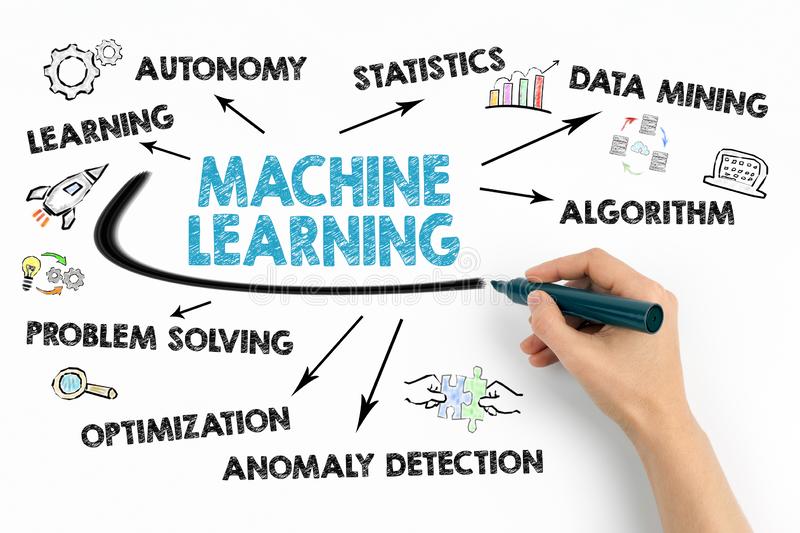For Students
Career in Machine Learning
Admin Aug 10, 2022 01:30 PM

TAGS
One of the fields of Artificial Intelligence is machine learning. Its goal is to allow computers to learn from their mistakes and accomplish jobs for which they were not originally built. It essentially lets computers to think in the same way that people do. Computers process data using statistics and algorithms through machine learning. The computers learn on their own from the raw data they are provided and perform operations like predictions and analyses that were not included in their initial code. To summarise, machine learning aims to empower computers to augment human capabilities by automating a variety of daily tasks.
Machine learning is used in almost every sector imaginable. It's in charge of spam email classification, voice assistants like Alexa and Siri ,smartphone face recognition, financial fraud detection, YouTube video recommendations, predictive financial analysis, portfolio management and predictive financial analysis,, among other things. As we all know, technology is infiltrating every aspect of life, and its widespread use has sparked the interest of many tech-savvy individuals which piques their interest in pursuing a career in machine learning.

Scope of Machine Learning
Machine learning is going to transform the way our world runs, according to research conducted by companies all around the world. According to Gartner, a multinational research and consulting firm, AI and machine learning alone would result in the creation of 2.8 million employments by 2022. According to Accenture, AI has the potential to boost the Indian economy by $975 billion by "changing the nature of work and improving business outcomes." According to the paper 'Rewire for Growth,' AI innovation can boost India's yearly gross value added growth rate by 1.5 percentage points. Clearly, these numbers show that pursuing a career in machine learning is a wise decision.
Additionally, businesses across India have engaged in machine learning to optimise, standardise, and scale-up their processes across divisions. Machine learning gives businesses an unrivalled competitive advantage by allowing them to make long-term predictions and strategies, build new products or supplement existing technology, and democratise enormous amounts of data. Deep learning, neural networks, and natural language processing are all sub-fields of machine learning that are growing more important and popular by the day.
According to current trends, machine learning will undoubtedly be at the vanguard of the next technological paradigm, and any industry that fails to understand the enormous potential that this discipline offers will be doomed to fail. It would have been unthinkable just a decade ago that a humanoid robot named Sophia would exist. Robots may now be used in surgeries, manufacturing processes, and even COVID-19 testing and quarantine enforcement thanks to machine learning.
In the years to come, computing abilities, which are one of the core talents utilised in machine learning, will become increasingly valuable. Students must learn coding after class 6 under the New Education Policy (NEP) 2020, a rule that speaks volumes about the government's vision for the future. Today's technology possesses never-before-seen cognitive abilities. It aspires to constantly learn, unlearn, and relearn in order to give a more personalised and better end-user experience. No two users will receive the same video recommendations if they open YouTube on two different cellphones, for example. This distinction is due to the fact that each of us has a particular identity, which technology strives to replicate through machine learning.
Prospective Careers in Machine Learning

Machine learning offers a wide range of applications in every business like:
Investment Banking
- Healthcare
- Supply Chain Management
- EdTech
- Wearables and IoT
- FinTech
- Computing and Software
- Product and Software development
- Insurance
The following are some of the career opportunities offered by machine learning:
Data Engineer- The task of processing an organization's massive data is credited to data engineers. In addition to creating analytics apps, they build, test, and maintain complicated data management systems. NoSQL, SQL, Hadoop, MySQL, Cassandra, MongoDB, MapReduce, Hive, and data streaming are all skills that data engineers should have.
Machine Learning Engineer- Complex machine learning algorithms are designed and implemented by a machine learning engineer. To handle business difficulties, algorithms aid in the recognition of complicated patterns in large volumes of data through clustering, anomaly detection, classification, and prediction.
Data Analyst- To obtain useful insights from raw data, a data analyst must employ Math, statistical science, and programming. This incorporates advanced data extrapolation methods, the use of ETL tools, Hadoop-based analytics, and business intelligence principles for data visualisation and warehousing.
Data Scientist- This job entails creating programmes that can handle massive amounts of unstructured data. Data scientists provide approaches for framing best future tactics based on the findings. R, SAS, Python, SQL, and Spark are all skills that data scientists have.
Stock Analyst (FinTech)- Machine learning algorithms' predictive powers encourage their application in the FinTech business. The algorithms identify trends in financial markets and assist investors in determining where to put their money.
Application/ Product Development- Machine learning is being aggressively invested in by wearable technology products such as Google glasses, Fitbit, and others in order to create a personalised user experience. Machine learning is being used in the EdTech sector to give students with a tailored learning experience.
Marketing- Consumer behaviour is something that businesses are always interested in researching and predicting. Companies can use machine learning algorithms to study customer behaviour online or in-store. Companies utilise this information to better their go-to-market strategy for new products as well as their targeted marketing outreach for existing items.
Automotive Industry- To automate the driving process, self-driving cars use complex machine learning processes. Machine learning algorithms, high-definition cameras, IoT sensors, and natural language processing are all necessary for these cars to work.

Education and Career Route in Machine learning
It goes without saying that knowledge of mathematics, statistics, and computing is required to pursue a career in machine learning. Executives from all over the world, on the other hand, stress the need of great communication skills for success in this emerging industry. People who want to get started early will benefit from classes in R, C++, Java, Python, and other computer programming languages. For a profession in machine learning, business acumen, data preparation, visualization, and organization are even more important. It's worth noting that these abilities must be learned through sufficient hands-on experience. In this field, a strong academic foundation combined with a diversified job experience in real-world challenges and applications is the best approach to go.
Many Indian colleges have recently developed innovative B.Sc. and B.Tech Undergraduate curricula that offer concentration in machine learning and AI in the final year. The majority of these courses are sponsored by companies like IBM, Tata Consultancy Services, and others. An undergraduate course in machine learning is an excellent way to get a head start in the subject for a student who is certain to pursue a career in the field. A bachelor's degree in Computer Science, Data Science, Statistical Science, Economics, Data Analytics, Mathematics or even Management, on the other hand, can serve as a stepping stone to a job in machine learning.
Machine learning courses are available at the postgraduate level at prestigious schools around the world, including in India. These courses provide a well-rounded curriculum by combining Data Science, Financial and Business Analytics, New Media Sense, Cyber security, Health Analytics, and Statistical Science. Apart from these traditional routes, MOOCs like Coursera, Udemy, and the like can be used to pique one's interest in machine learning and improve one's skills. These courses also come with a variety of difficulty levels and individualised learning sessions.
Search
Latest Blogs

Exploring Opportunities in Emerging Engineering field
Admin
Dec 14, 2024 05:18 PM

Navigating College Majors
Admin
Sep 25, 2024 04:04 PM

Tools for Measuring Strengths For Career
Admin
Sep 25, 2024 03:27 PM
Interested in getting latest updates?
SUBSCRIBE


















